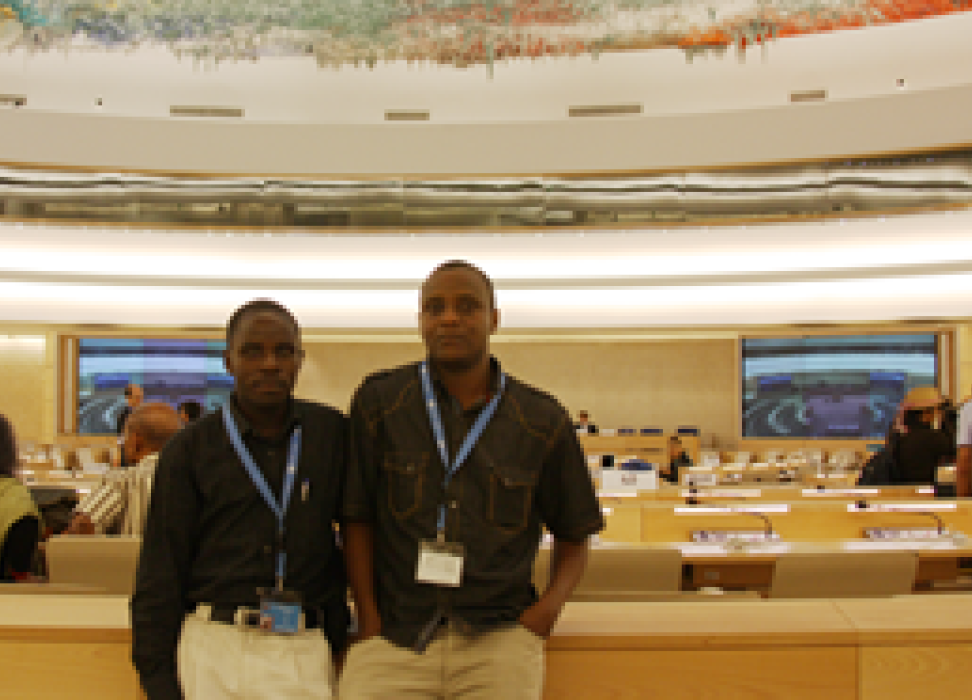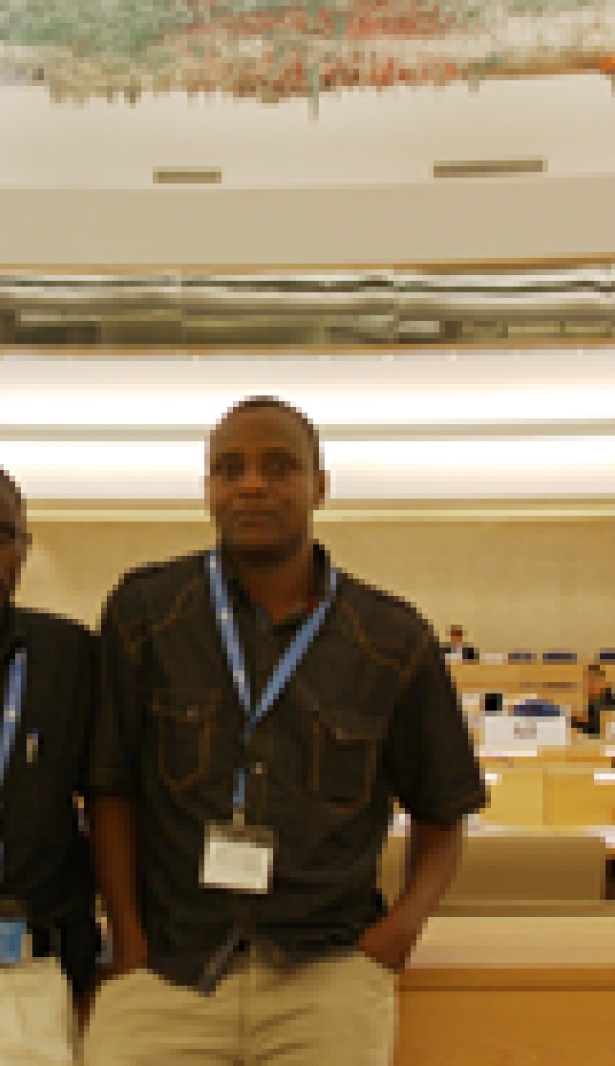The Batwa: promoting social and economic rights in a new environment
08 August 2014

“The Batwa are extremely disadvantaged in society due to their poverty, poor health and lack of land,” said Callixte Hategekimana from the Batwa community in Rwanda.
Approximately two decades ago, the Batwa were chased out of their ancestral land without compensation or skills to live outside the forests.
“Our native homeland is now a protected national park and we don’t have access to it,” said Callixte, adding that as a result they cannot hunt, gather or use herbal medicine as they had for thousands of years.
“The Batwa have totally lost their ancestral way of forest life—their customs, traditions and religion were taken away and transformed by their neighbours without consultation or compensation,” said Hategekimana.
Hategekimana recently participated in the four-week Indigenous Fellowship Programme of the UN Human Rights Office in Geneva. Since the launch of the Programme in 1997, over 300 indigenous men and women have been given the opportunity to learn about the UN system, human rights instruments and mechanisms with indigenous rights as a key component.
Callixte Hategekimana and Yves Minani, also a participant in the Indigenous Fellowship Programme and member of the Batwa community in Burundi, spoke of the grave economic situation, which they said is partially attributable to the lack of arable land.
“Forty-three per cent of the Batwa people in Rwanda do not have land and for those who do have it, it is a small area,” said Hategekimana.
“Without access to land, many Batwa have tried to earn a living by selling pottery. However, today pottery is worthless and is sold at a price below the cost of production,” he said, highlighting that 85 per cent of potters ate only once a day.
Yves Minani explained that as a result of not having a sufficient source of income, the Batwa are unable to receive proper care for illnesses.
“The Burundi Government is responsible for ensuring that the Batwas have access to health care, however the Batwa feel they lack the economic means to be able to seek treatment,” said Minani.
Both Minani, who is the President and Legal Representative of Union des Peuples Autochtones pour le réveil au développement (Indigenous Peoples’ Union for Awakening and Development), and Hategekimana, from Communauté des Potiers du Rwanda (the Rwandan Potters’ Community) are working to promote the social and economic rights of the Batwa.
After completing the Indigenous Fellowship training programme in Geneva, both fellows plan to use their newly acquired skills to advance indigenous rights in their communities.
The International Day of the World's Indigenous People is commemorated every year on 9 August to promote and protect the rights of indigenous people around the world.
8 August 2014

